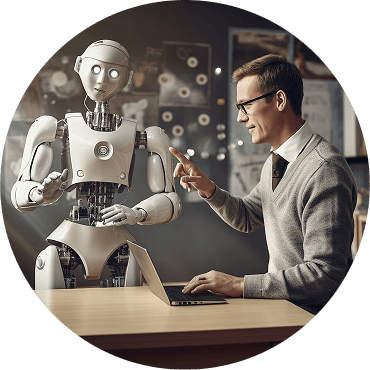In the rapidly evolving landscape of automation and artificial intelligence, one role is increasingly taking center stage: the Robotic Process Automation (RPA) developer. As organizations push the boundaries of AI implementation across business operations in 2025, the demand to hire RPA developer professionals is growing exponentially. These experts are not just writing scripts for mundane tasks—they are enabling the very foundation upon which AI can thrive.
The Evolving Role of RPA in the AI Era
RPA has traditionally been used to automate rule-based, repetitive tasks—think data entry, invoice processing, and system updates. However, in 2025, the narrative has shifted. RPA is no longer isolated; it is now deeply integrated with AI technologies like machine learning, natural language processing, and computer vision. This integration allows businesses to move from simple task automation to intelligent automation.
This transformation is only possible because RPA developers are evolving too. They are acquiring hybrid skill sets that merge software development, AI model integration, and data analytics. In short, RPA developers are becoming the bridge between traditional automation tools and next-generation AI capabilities.
How RPA Developers Empower AI Applications
As AI systems become more complex, their deployment and operationalization also require robust backend support. RPA developers play a crucial role in this by designing workflows and automation pipelines that support AI inputs and outputs. Their work ensures that AI models can fetch data from disparate sources, apply decision-making logic, and trigger downstream processes—all in real time.
Here are some key ways in which RPA developers contribute to AI success:
Data Pipeline Management
AI thrives on data, and clean, structured data is essential for accurate outputs. RPA developers build bots that gather data from multiple systems, validate it, and organize it in a way that AI algorithms can consume efficiently. This function is critical in industries such as healthcare, finance, and logistics, where data fragmentation is a major challenge.
Seamless System Integration
AI tools often need to integrate with legacy systems, third-party APIs, and databases. RPA developers are adept at building these integration layers using automation bots, thus enabling a smoother flow of information. Their expertise allows companies to deploy AI without overhauling their existing infrastructure.
Accelerating Decision-Making
By automating the inputs and outputs of AI systems, RPA developers reduce the time it takes to make decisions. For example, in fraud detection, an AI model might flag a suspicious transaction. An RPA bot can instantly collect all relevant data, notify the concerned departments, and even freeze the transaction, all within seconds.
Why the Demand to Hire RPA Developers Is Rising
As intelligent automation becomes a competitive necessity in 2025, the call to hire RPA developers is becoming louder. Businesses understand that without skilled RPA talent, their AI strategies may falter due to poor data handling, system incompatibilities, or automation inefficiencies.
Moreover, the versatility of RPA developers makes them invaluable. They can work across departments—IT, operations, customer service, compliance—bringing automation and AI-driven improvements everywhere they go. Their skillset enables rapid scalability of AI projects, making them a core asset in digital transformation initiatives.
Future-Proofing AI with RPA Expertise
While AI technologies continue to evolve, the infrastructure supporting them must be agile and robust. RPA developers provide this stability by creating adaptable automation frameworks that can be modified as AI models evolve. This future-proofing ability is especially important in a dynamic business environment where AI models may need constant retraining and integration with new data sources.
Additionally, RPA developers often serve as the first line of defense when automation systems encounter errors or anomalies. Their capacity to troubleshoot, debug, and enhance workflows ensures that AI systems remain functional and reliable over time.
Skill Sets That Make RPA Developers Indispensable
In 2025, the profile of a successful RPA developer includes more than just technical prowess. These professionals are also required to have:
- A strong understanding of business processes
- Familiarity with AI concepts like machine learning and NLP
- Experience with low-code and no-code platforms
- Proficiency in scripting and database management
- A problem-solving mindset and collaborative approach
These skills allow them to work seamlessly with data scientists, IT teams, and business stakeholders, ensuring that AI initiatives align with strategic goals.
Conclusion
As automation and AI continue to converge, RPA developers are no longer just support staff—they are strategic enablers. Their ability to connect disparate systems, manage data flows, and support intelligent decision-making places them at the heart of digital transformation in 2025. Companies that aim to harness the full power of AI must recognize the critical need for skilled RPA developer talent.
Whether it’s automating complex workflows, enabling faster decision-making, or ensuring seamless integration across platforms, the role of the RPA developer is undeniably central to AI success. For any organization looking to stay competitive in this era of intelligent automation, investing in skilled RPA talent could be the most impactful move of the year.

